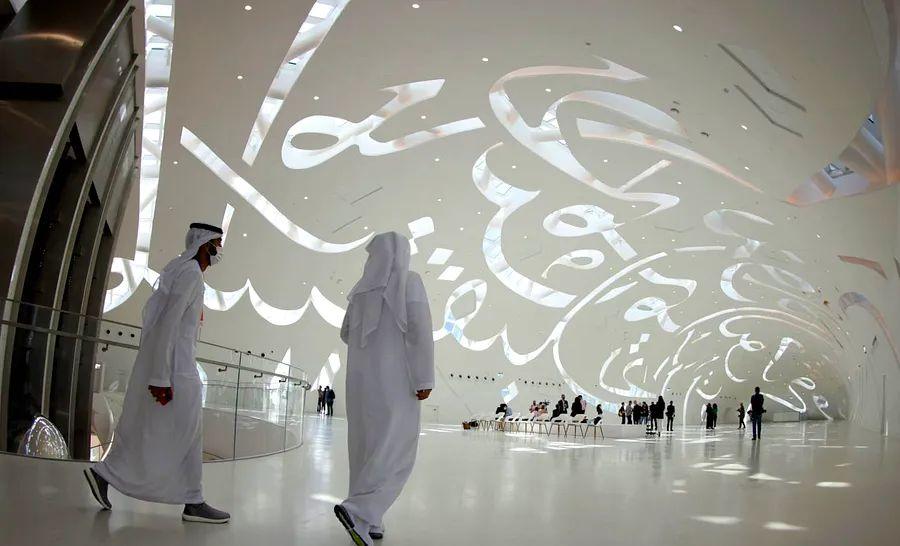13 essential tips for visiting Dubai

Having grown up in Dubai, I've witnessed its remarkable transformation from a humble trading and fishing hub to a global metropolis. Here are my top recommendations for visitors: immerse yourself in the local culture, dress modestly, and familiarize yourself with the local laws and customs.
Home to the iconic Burj Khalifa and stunning man-made islands like Palm Jumeirah and The World, Dubai is synonymous with luxury and innovation. Beyond the glamour, the city boasts a vibrant culture and welcoming hospitality, thanks to its diverse community of over 200 nationalities.
Dubai is a city that captivates but can also confuse if you're unprepared; having the right insights will help you navigate it seamlessly. Whether you're enchanted by architectural wonders like the Museum of the Future or eager to explore the rich heritage of Old Dubai, here are key things to know before your trip to ensure a memorable and hassle-free vacation.
1. Plan your visit between October and April
Dubai experiences extreme heat during the summer, with temperatures often exceeding 40°C (104°F). The ideal time to visit is in winter and spring when the weather is cooler and more enjoyable, coinciding with popular outdoor events like the Dubai Shopping Festival and Dubai Design Week. Expect mild evenings from October to April, so bring along a light jacket, sweater, or shawl.
 Locals and tourists revel in the captivating fountain show in Downtown Dubai © Delpixart / Getty Images
Locals and tourists revel in the captivating fountain show in Downtown Dubai © Delpixart / Getty Images2. Aim for a minimum of five days in Dubai
With its abundance of attractions, Dubai offers enough experiences to fill at least five days. Start by exploring iconic sites in Downtown Dubai, including the Burj Khalifa, Dubai Mall, and the Dubai Fountain. Take a scenic abra boat ride across Dubai Creek at sunset to reach the lively souqs in Deira and Bur Dubai, where you can haggle for spices, textiles, and gold.
As the week progresses, unwind on the stunning beaches of Jumeirah and savor meals along the Dubai Marina waterfront, famous for its refreshing plazas and breathtaking skyline. Taking your time to explore Dubai allows you to appreciate its grand modern attractions while discovering hidden treasures at your own pace.
3. Venture beyond the city limits
Although Dubai's skyline is remarkable, numerous attractions await outside the city. The Hatta Mountains boast hiking trails, kayaking opportunities, and a chance to glimpse traditional Emirati culture at the Hatta Heritage Village before the oil boom.
A short hour's drive from the city leads you to the desert, home to the Dubai Desert Conservation Reserve. This expansive 225 sq km reserve constitutes 5% of Dubai's land and offers a perfect setting to experience the serene desert landscape and its elusive wildlife, including the Arabian oryx.
 If there are specific places you’re eager to dine at, be sure to make reservations before your trip © xavierarnau / Getty Images
If there are specific places you’re eager to dine at, be sure to make reservations before your trip © xavierarnau / Getty Images4. Reserve activities and restaurants ahead of time
Whether it’s desert safaris, dhow cruises, or meals at Michelin-starred venues, securing bookings in advance is one of the smartest tips for visiting Dubai. This not only saves you time but also guarantees you the best choices, especially for popular spots like the Burj Khalifa at sunset, where tickets often sell out quickly during peak season.
5. Opt for public transportation to save on expenses
Dubai's public transport network is a convenient and budget-friendly way to explore the city. It's advisable to avoid driving unless you're comfortable with the city’s fast-paced traffic. The metro, buses, and trams are clean, air-conditioned, and fairly straightforward to use. For longer trips, taxis are widely available and reasonably priced compared to other major cities.
 Wearing modest attire is essential for demonstrating respect here © fatimas / Getty Images
Wearing modest attire is essential for demonstrating respect here © fatimas / Getty Images6. Wear modest clothing to honor local traditions
If you're curious about what to wear while visiting Dubai, you're not the only one. Although the city is fairly liberal compared to other emirates, it's important to keep in mind that the UAE is a Muslim country, and dressing modestly is crucial for respecting local customs.
When visiting cultural sites and museums like Dubai Creek House and Etihad Museum, opt for clothing that covers your shoulders and knees. Swimsuits and bikinis are fine at the beach or pool, but remember to cover up when you leave those areas.
When visiting Jumeirah Mosque, one of the few mosques that welcomes non-Muslim guests, ensure you wear loose, modest attire that covers your arms and legs completely; women should also bring a scarf to cover their heads.
7. Follow public photography rules
Dubai offers countless Instagram-friendly locations, but be aware that photography may be restricted in certain government buildings and mosques.
In local culture, photographing people can be sensitive. Avoid taking pictures of individuals, especially women and children, without their consent. In the UAE, it is also illegal to capture and share photos or videos of people without permission on social media.
 To prevent causing offense, it's best to avoid public displays of affection altogether © S-F / Shutterstock
To prevent causing offense, it's best to avoid public displays of affection altogether © S-F / Shutterstock8. Steer clear of public displays of affection
In Dubai, actions like kissing and hugging in public are generally frowned upon and can lead to fines or even arrest.
While married couples holding hands is usually acceptable, exercise caution based on your location. It's typically fine in shopping malls or restaurants but not appropriate in places of worship or cultural sites.
9. Review your medications and steer clear of illegal drugs
Dubai enforces strict drug laws. Even minor amounts of marijuana, CBD oil, and some prescription medications can lead to harsh penalties, including imprisonment. Always carry a valid prescription for any medications and review the UAE's official guidelines on restricted substances prior to your trip.
Alcohol consumption is restricted to licensed bars and restaurants, so avoid drinking on public beaches. Driving under the influence, even with a minimal amount of alcohol, can result in fines, jail time, or deportation. Being intoxicated in public is also illegal; disruptive behavior or yelling obscenities can lead to serious consequences.
10. Honor Islamic customs during Ramadan
Dubai is a diverse city, but it's crucial to respect Islamic customs. During Ramadan, while non-Muslims are not required to fast, it's best to refrain from eating, drinking (even water), chewing gum, or smoking in public during daylight hours.
While English is commonly spoken, learning a few basic Arabic phrases is a thoughtful gesture. Words like “Marhaba” (welcome) and “as salam alaykum” (peace be upon you) are friendly greetings that can be used in everyday interactions. Responding with “walaykum as salam” (and upon you be peace) or “shukran” (thank you) is greatly appreciated by locals.
11. Keep hydrated in the heat
The heat in Dubai can be severe, making dehydration a genuine concern, especially during the summer. Always carry a refillable water bottle to stay hydrated while exploring the city.
You can refill your bottle at various water stations throughout the city, part of a sustainability initiative aimed at reducing the use of single-use plastic water bottles.
While tap water is generally safe to consume, bottled water is readily available in restaurants and grocery stores.
 Historic areas like Bur Dubai are not as accessible as the newer parts of Dubai © Matteo Colombo / Getty Images
Historic areas like Bur Dubai are not as accessible as the newer parts of Dubai © Matteo Colombo / Getty Images12. Is Dubai accessible?
With the strong support of initiatives like Dubai Disability Strategy 2020, the city is progressively enhancing accessibility for individuals with disabilities, often referred to as People of Determination. This dedication ensures that accessibility becomes a tangible reality.
Numerous modern venues, hotels, and public transportation options feature ramps, elevators, tactile pathways, and other essential accessibility elements. However, some regions, especially older neighborhoods like Bur Dubai and Satwa, still face challenges, such as the absence of drop-down curbs.
13. Exercise discretion for LGBTIQ+ travelers
Dubai enforces strict laws against homosexuality, making it a criminal offense to be gay in the UAE.
Public displays of affection from LGBTIQ+ couples (as well as heterosexual ones) may attract negative attention or legal consequences, so it's wise to be discreet and avoid highlighting your relationship in public. Additionally, cross-dressing is prohibited, and transgender individuals may face challenges when dealing with official documentation.

1

2

3

4

5
Evaluation :
5/5